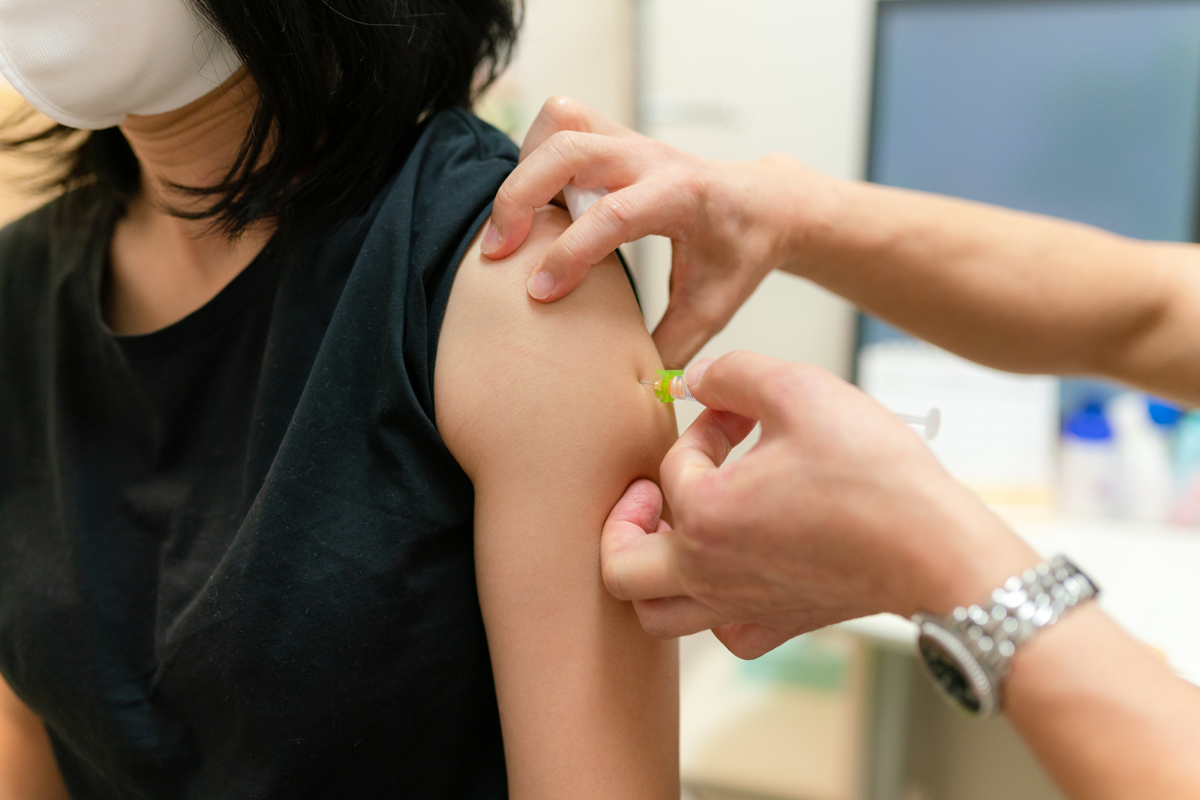A Phase 2 clinical trial evaluating second COVID-19 booster shots and various variant-targeted vaccines has begun enrolling adult participants at Emory.
The study, known as the COVID-19 Variant Immunologic Landscape (COVAIL) trial, is sponsored by the National Institute of Allergy and Infectious Diseases (NIAID), part of the National Institutes of Health, and Emory has received funding support under NIH contract number 75N91019D00024 to Leidos Biomedical Research in Frederick, Maryland.
The COVAIL trial aims to understand if the vaccine regimens being tested — prototype and variant vaccines alone and in combinations — can broaden immune responses in adults who already have received a primary vaccination series and a first booster shot.
“The COVAIL study is addressing an important public health need by testing different potential booster shots of variant vaccines to expand and optimize immune coverage to existing and emerging antigenic variants,” says Nadine Rouphael, MD, MSc, study co-chair and executive director of the Hope Clinic at Emory Vaccine Center.
The study includes both the currently authorized mRNA-1273 vaccine from Moderna, Inc. as well as three different investigational vaccines targeting the Beta, Delta or Omicron variants, sometimes given at the same time. More detailed information about the study is available at clinicaltrials.gov (NCT05289037).
Despite waning protection against mild infections during the Omicron wave, COVID-19 vaccines available in the United States so far have maintained durable protection against severe disease. But predicting if, when and where new COVID-19 variants will emerge and how they will affect the population remains challenging.
“The SARS-CoV-2 virus will continue to evolve over time, leading potentially to new variants and the possibility of periods of higher incidence of symptomatic disease,” says Angela Branche, MD, study co-chair and associate professor of medicine at the University of Rochester. “Our hope with the COVAIL study is to move from responsiveness to preparedness.”
NIAID and its partners are preparing for the possibility of future variants evading protection against currently available COVID-19 vaccines. Study vaccines included in this first stage of the trial come from Moderna, Inc., but researchers plan to enroll more participants to evaluate additional vaccine platforms and variant vaccines from other manufacturers as needed to further inform public health decisions.
At Emory, the Hope Clinic, led by Rouphael, is participating in COVAIL, as well as the Emory Children’s Center Vaccine Research Clinic led by Evan Anderson, MD. Those interested in participating in the trial at the Hope Clinic, located in Decatur, can contact the Hope Clinic or email vaccine@emory.edu. The Emory Children’s Center vaccine research site’s preferred contact mode is via email to ecc.vaccine@emory.edu.
Investigators at 24 sites across the country are enrolling participants 18 years and older (around 600 nationwide) who are in stable health and already have received a primary COVID-19 vaccination series and booster shot. In particular, study organizers plan to recruit adults who are 65 years of age or older, and the study is open to those who have had confirmed COVID-19.
Participants will be monitored for safety following vaccination and will be asked to return to the clinic during set times over the course of 12-14 months to provide blood samples. Investigators will evaluate the samples in the laboratory to measure and characterize immune responses to SARS-CoV-2 strains. Investigators aim to have initial findings available by August 2022.
The study is being conducted in collaboration with academic medical centers across the United States., NIAID’s Infectious Diseases Clinical Research Consortium and the NIAID SARS-CoV-2 Assessment of Viral Evolution Program.
About the Infectious Diseases Clinical Research Consortium (IDCRC)
This activity is supported by the Infectious Diseases Clinical Research Consortium (IDCRC) through the National Institute of Allergy and Infectious Diseases (NIAID) (5UM1AI148684-03). The IDCRC, consisting of the Vaccine Treatment and Evaluation Units (VTEUs) and the IDCRC Leadership Group, was formed in 2019 to support the planning and implementation of infectious diseases clinical research that efficiently addresses the scientific priorities of NIAID. The consortium includes infectious diseases leaders and clinical researchers from Emory University, University of Maryland School of Medicine, Baylor College of Medicine, Cincinnati Children’s Medical Center and University of Cincinnati, FHI360, Fred Hutchinson Cancer Research Center, Johns Hopkins University, Kaiser Permanente Washington Health Research Institute, New York University, Saint Louis University, Vanderbilt University Medical Center, University of Alabama at Birmingham, University of Rochester, University of Washington, and NIAID. For more information about the IDCRC, please visit www.IDCRC.org.

